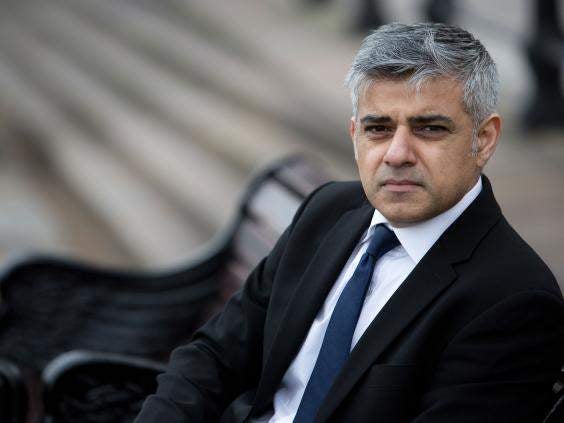
Sadiq Khan eased to victory in last week’s London mayoral election on the back of an offensive and lacklustre Conservative campaign. So, was it really Zac Goldsmith’s fault that the Tories lost City Hall after eight years and is Sadiq Khan really going to be a problem for London business?
Firstly to the much maligned Conservative campaign. Tory HQ must be kicking themselves right now for letting Lynton Crosby’s team return the party to its ‘nasty’ pigeonhole. As is all over the press, Goldsmith’s aggressive campaign suggested that Khan was a ‘radical’ who had liaised with various dubious figures in the past. The heavily criticised scare-tactics backfired on the strategists and the public pulled away from the popular MP for Richmond and voted for Muslim son of a bus driver, Sadiq Khan.
Scaremongering aside, the Conservative campaign also lacked the necessary fire and oomph needed for victory- while Khan’s team came out fighting with a quick-fix popular policy promise, Goldsmith lacked energy, panache and any sense of tangible, catchy positioning.
In the wake of the results, Conservative party members (even the head of the Tory Strategy Unit himself, Lynton Crosby) are now trying to distance themselves from the debacle.
But as Goldsmith’s sister, Jemima Khan, recently said via Twitter, the campaign did not reflect the anti-establishment ecologist’s personality or values. Perhaps if more of his character and quirk had been allowed to show through, the polls might have been tipped the other way.
So, the strategists failed Goldsmith and now, with a significant margin of over ten percent, Mr Khan takes the reigns at City Hall. Socialist Labour leader Jeremy Corbyn and transport investment issue aside (how is he going to balance the books given that fare promise?!), it is worth noting that Khan ran on the pledge that he would be the most business friendly mayor that London has ever seen. But what is his plan for business?
Khan calls London the ‘world’s greatest commercial centre – the business capital not just of Britain, but of Europe’. But he also recognises that continuous and innovative work is needed to maintain and develop this position.
Dismantling the barriers to growth and increasing productivity are listed as part of Khan’s strategy. ‘I’m determined to be a ceaseless advocate for investment in London, and a champion for the interests of our industries, at home and abroad,’ he states in his manifesto.
Khan’s business plan focuses on developing partnerships with businesses, partly via the introduction of a business advisory board to guide the mayor’s decisions and also through the expansion of skills provision. Competiveness and productivity are big words for Khan. He believes that by taking action on housing, providing affordable childcare, and by challenging overseas business rules, he can provide an environment in which business can thrive.
Like Goldsmith, Khan gets very excited about startups and growing the capital’s small businesses – London currently holds the position as the top European start up hub and the new mayor wants to keep it that way; specifically by providing offices. He wants to protect commercial space to ensure the availability of affordable options; he wants to use the London Plan to help startups set up premises and he also wants to provide live/work units as part of his housing plan. All specific, targeted solutions aimed at providing foundations for small businesses. Nothing to quibble about there.
Tech – another classic investment buzzword – is also high on Khan’s business list. He wants to remove the barriers to growth in the London tech world; establish a tech talent pipeline (based on the model developed by Bill de Blasio in New York); improve digital infrastructure; and appoint a ‘Chief Digital Officer’ to sector growth.
Following in the wake of uber-lols-ambassador, Boris Johnson, will admittedly be hard for Khan, but he vows to champion London overseas and ensure that City Hall shouts loudly for business at the UK and EU level. Arguably something to steady, rather than shake, business resolve.
Moving on…Infrastructure is an interesting area for Khan. He came to power on a catchy, yet potentially problematic promise that fares would be frozen until 2020. However, within days of his election, and after the Conservatives warned that the freeze would cost the mayoral coffers £1.9bn, ratings giant Moody’s now suggests the move would be credit negative for TfL.
Dodgy promise aside, Khan has detailed a few specifics on his plans to develop business supporting infrastructure – securing Crossrail 2, Bakerloo line and London Overground extensions, new river crossings, discussions about Crossrail 3 and new orbital links are all part of his plan as is a preference for building a second runway at Gatwick
What is most striking about Khan’s business manifesto is how similar it is to Goldsmith’s: Business advisory committees, digital ambassadors, a tech and start-up focus, office space, childcare and the development of housing and skills to advance business interests. The bare bones have the same DNA. On the basis of the manifestos, both candidates would have been good for London business. So, it will be interesting to follow Khan as he fleshes out his ambiguous skeleton of a plan with meaty, specific initiatives.






